
 BACK
BACK
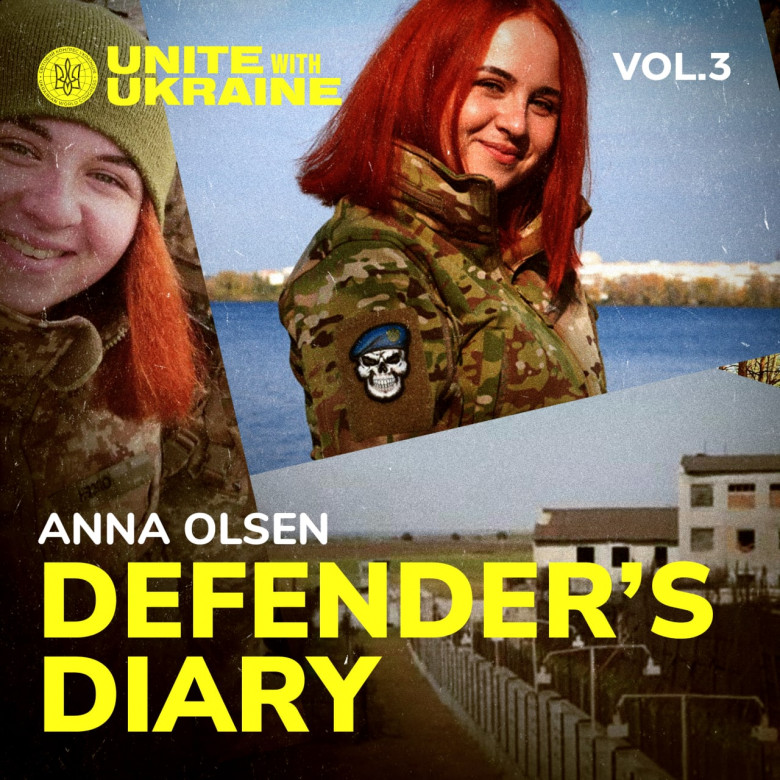
Following is the third and final part of the story of medic Anna Olsen, a brave defender of Mariupol who treated the wounded in a bunker at the Ilych steel plant. In part one, Anna described her decision to serve the armed forces and how she ended up in the siege of Mariupol. Anna describes an unsuccessful breakout attempt and return to the bunker to decide between another high-risk breakout or surrender to Donetsk separatists. In part 2, Anna tells about surrender and treatment in enemy POW detention centers – entirely outside the world of accepted norms. In part III, Anna and her compatriots are being held in Valuyka penal colony in Belgorod, russia.
"They understood the Ukrainian language, but they did not understand us"
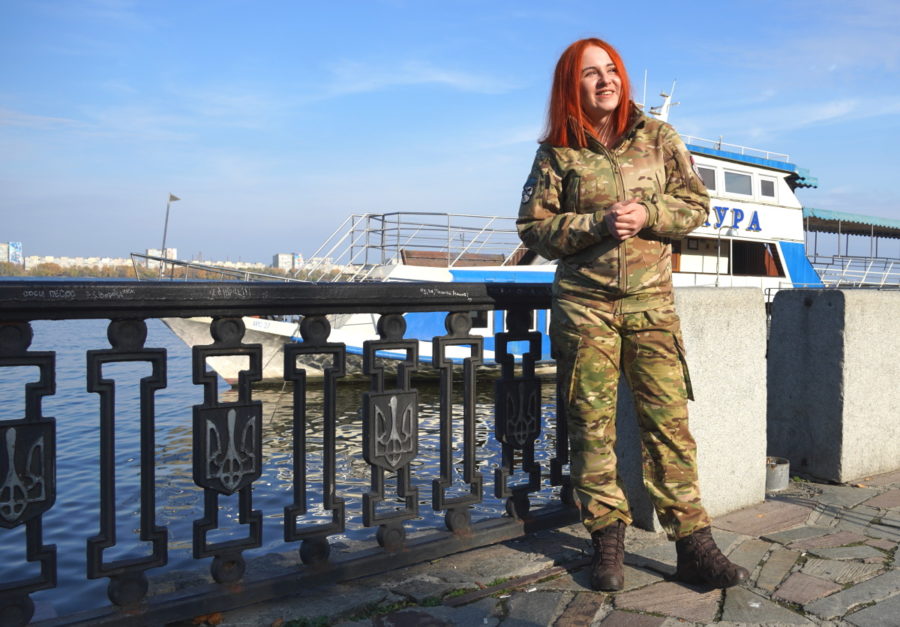
Anna Olsen. Photo: Novynarnia Anna Olsen. Photo: Novynarnia
Valuyka is very close to Kharkiv Oblast. Quite a lot of ethnic Ukrainians live there. Did you ever sense it?
“Let's put it this way, the physical violence against us stopped there. Instead morale was very high. And precisely because many employees had Ukrainian families - ‘mixed bloods’ – as they called them. They understood the Ukrainian language, but they did not understand us. For them, we were fascists, Nazis and idealogues.”
You mean that those with Ukrainian roots were bigger haters of Ukraine than ethnic Russians?
“It seemed like it. But what can you expect from them, with such propaganda. They forced us to watch their TV. They constantly told us that Europe without russian gas would die in the cold winter. That Europeans are on russia’s side because only russia can save the world. While we were forced to watch these absurd braying donkeys, they stood and nodded so seriously, ‘Yes, our Russia is great, yes, we can achieve anything. And you are so evil.’ It was funny to us, of course, but laughing could bring on swift punishment.
“Meanwhile, it was in Valuyka that exchange talks began. We also underwent interrogation there, but at least they were giving us some information and confirming that we had been submitted for exchange. They said that Ukraine would not take us away, had no one to exchange us for. But it was clear that some process had begun.
“Soon after, they woke us up at 4 in the morning and took us outside. They took us to another penal colony in the Kursk Oblast. It turned out later that it was the last place before the exchange, but then, we didn't know it.
"For each offense - 200 squats. But how my uniform fits me now!”
“In the new colony, we, Ukrainian prisoners of war, were separated into different cells. In general, the cells there were very cramped, 8 to 13 women in a very small area. There were rows of bunk beds and a small dinner table for 4 people. So during meals, it was necessary to rotate. While some ate, others stood or sat on the floor to fit in somehow.
“But we were still lucky, because those who ended up in the so-called SHIZO (penal detention center) were treated much more harshly, much less time for eating, for going to bed...
“We all had to go to bed there very quickly. We laughed when the local guards played a game called ‘Go to bed in 3 seconds’.
“IF YOU DIDN'T HAVE TIME TO LAY DOWN AND COVER YOURSELF WITHIN 3 SECONDS, YOU WERE PICKED UP AND ‘TOSSED’”
Is this another [russian] slang for physical abuse?
“Well, how to say. You can be ‘tossed’ for anything. We calculated that we could do 200 squats in a day, and then another 200 squat-jumps. If I can be grateful to russians for something, it's that my uniform fits me even better now. (laughs)
“What’s more, we had to recite their poems, shout their anthem, march and listen to their indoctrination on the radio where they told us we are fascists. But we didn't stay there for long.”
"The Russian soldiers, who exchanged us, could not look us in the eye. They were ashamed"
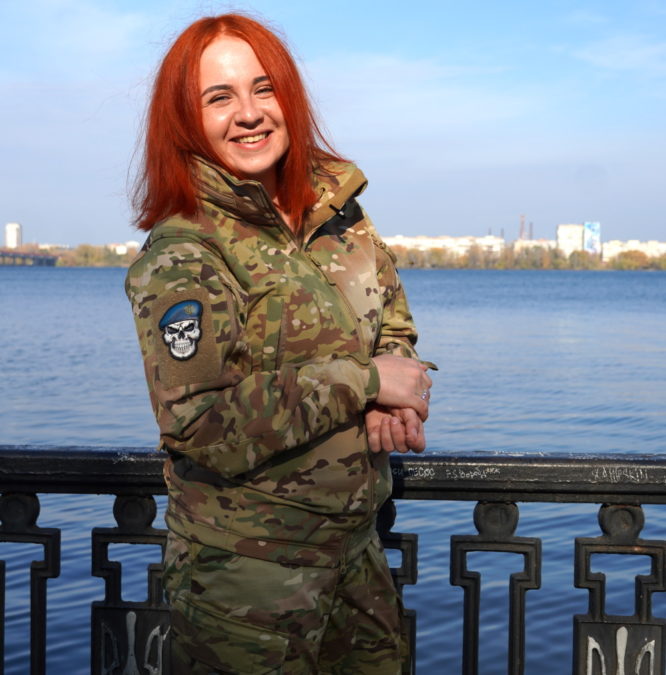
Anna Olsen. Photo: Newsroom
Tell us how the exchange took place.
“One day we were picked up around 4 o'clock, told to pack all our things and taken to the ‘sweat box’ [“avtozak” - prisoner transport vehicle]. We thought that this was a transfer to another place of detention. And this time somewhere far away, because they took us to the airfield. We heard the roar of a plane. We couldn’t see anything because we were blindfolded and our hands were tied with tape (and those less fortunate - with cable ties). But it was clear that the plane was big. We were simply seated on the iron floor in a kind of ‘herringbone’ pattern. Each was told to spread her legs as wide as possible so that another girl could sit in your crotch. And so we flew for about three hours.
“From their conversation we understood that we were flying to Crimea. When we were taken out of the plane,our native sea wind hit us in the face. Until 2014, I often went to Crimea with friends. I love it very much. I felt that we were somewhere near Sevastopol, which later turned out to be true.
“They took off our blindfolds and untied our hands – even allowed us to go to the toilet – and loaded us into KamAZ trucks with their Z symbols. And no matter how scary it was, whatever happened next, we were already in Ukraine. Let it be in the occupied territory, but it is still our land!
“They tried to block out the windows, but couldn’t even do that, so left us with a patched up hole. And the girls who were sitting next to the gap saw the place names that we passed. When we passed Dzhankoy and went further, one girl turned and cried with such a wide smile. ‘Girls! We are in Kherson oblast!’
“HERE WE ALL SMILED, BECAUSE WHATEVER HAPPENED, WE WERE CLOSE ENOUGH TO TOUCH OUR OWN LAND!”
“Honestly, then the gap opened more, we saw a man in a pickup holding a PK machine gun aimed at us. If someone decided to run away, they would be shot.
“He accompanied us almost to the line where the exchange took place, but turned back a little less than a kilometer away.
“By that time we were already in Zaporizhzhya. We stopped to pose for their television. We heard them talking, ‘Tell them to say that they were treated like movie stars, well-fed”. Our thoughts were, ‘Don’t come to our vehicle because we will tell them something.’ Half our vehicle were Marine Corps. Luckily, they went to someone else.
“Finally the vehicles stopped, they started to dismantle the sides. Suddenly we saw a glimpse of our native forces. I never thought in my life that I would be so happy to see my native uniform!
“They released us from the vehicle and we took the usual position of heads down and arms back to avoid getting ‘tossed’. In their language they said, ‘Girls, you’re in Ukraine. You are no longer prisoners.’ (Cheerful Ryzhula's eyes water, she pauses)
“They lined us up, started calling us by name and sent us forward in groups of 10-15 girls. We met the russian exchanges coming towards us. It was so strange to see how they were fed, shaved, washed, with their belongings - suitcases, bags.
“And we go to meet them like this - thin, dirty, in the clothes of strangers. We didn't even have our own things, everything was taken from us. The contrast was very high.”
In this exchange, there were many civilian Russian sailors who were stuck in Ukraine after the full-scale invasion. They weren’t prisoners of war, which is probably why they had suitcases.
“Yes, but the military were definitely there. They were immediately noticeable. They walked with their heads bowed and could not look us in the eyes - they were ashamed. And here we are, tortured, exhausted. But we go with our heads proudly raised, happy!
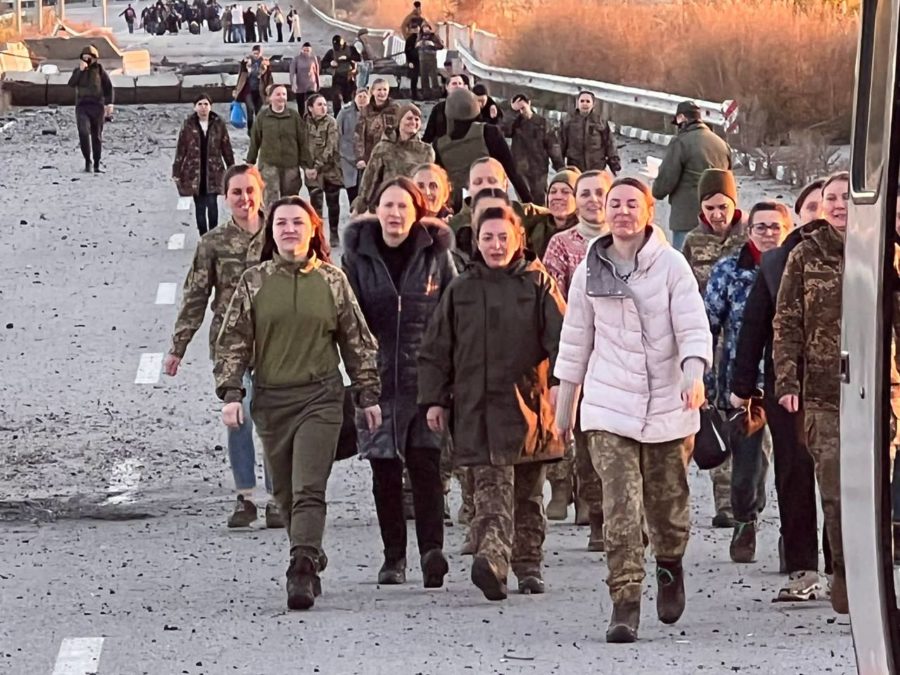
Military women released from captivity, October 17, 2022
“In the demilitarized zone, the girls began to sing the national anthem of Ukraine. Disorganized, out of sync, but it was so nice!
“And most telling was the way we were welcomed. We hugged and cried together with our guys in the exchange. We were taken in comfortable buses with water, sweets, cigarettes, whatever you want. They immediately gave us phones to call our relatives.
“The others were told, ‘Glory to Russia!’ and put in the same trucks that brought us. They sewed up the sides and left. Is this the reception of a country that wants the return of their captives? The impression was that they were forcibly taken away.”
Yes, video shows that those civilian sailors were not happy about it.
“When we arrived, we still couldn't believe it for a long time.”
“IT FELT LIKE YOU WOULD FALL ASLEEP AND WAKE UP AGAIN TO THE ANTHEM OF THE RUSSIA.”
The first day passed, the second, the third. Our uniforms, our language, our land. It was like, ‘Thank God it is finally over.’”
"I believe that the Armed Forces of Ukraine will soon liberate all our territories and I will see my daughter" Do you know something about the fate of those women who allegedly decided to stay in the occupied territory? At least this is how the Russians explained the fact that the exchange was 110 for 108, claiming that two Ukrainian girls did not want to return to Ukraine.
“Yes, for sure. We were accompanied by civilian girls who decided to stay in temporarily occupied Donetsk. They said they have families there, elderly parents who for some reason could not leave Mariupol, for example. Earlier some decided to stay in russia – some civilians captured in occupied Kharkiv. They were frightened and confused. And maybe they broke under propaganda. It's a personal matter for everyone.
“WE, THE MILITARY, WERE REPEATEDLY OFFERED RUSSIAN CITIZENSHIP”
“We military personnel were offered russian citizenship, a passport for temporarily occupied territory, to become a traitor or a deserter. It was impossible to even imagine. We were ready to sit as long as it took to return to Ukraine. But civilians are less prepared for this.
“It was a little unpleasant. We stand for the protection of civilians and such a travesty is foisted upon us.”
In connection with this female exchange, there were several poignant stories when mothers and children finally met. Everyone knows the story of Victoria Obedina, a medic from Azovstal, who was separated from her daughter Alisa during filtration. Now they are finally together. And your daughter still remains in the occupied territory. What can you tell us?
“Unfortunately, I communicate with her only through text and voice messages. Those animals cut the connection there and I can't even make a video call. We haven't seen each other for almost a year, because I took her to her grandmother before rotation. I celebrated my child's sixth birthday in the Valuyka penal colony and could not even congratulate her. But, it’s good that now we can somehow communicate.
“Thank God, my child does not understand where I have been. For her, captivity and deployment are one and the same. She thinks that her mother is sitting in a tent somewhere, drinking tea by the stove and watching TikTok. Let her think so.
“And I believe that our Armed Forces are doing everything they can to clear our territory of those evil invaders as soon as possible. My daughter and I will meet soon. I hope that soon after rehabilitation I will be back in service. I will be able to go with the guys to our liberated land and tell my daughter ‘Happy Birthday!”
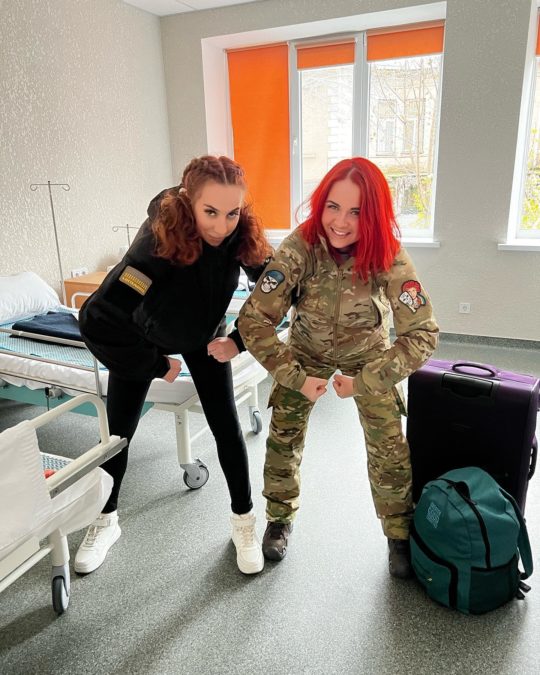
The world needs to do more to step up and defend Ukraine's democratic right to determine its own future.
DONATE NOW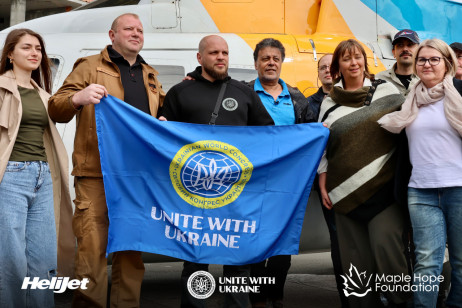
Ukrainian World Congress, Maple Hope Foundation, and Helijet Deliver Lifesaving Medical Helicopter to Ukraine
on Apr 16, 2025
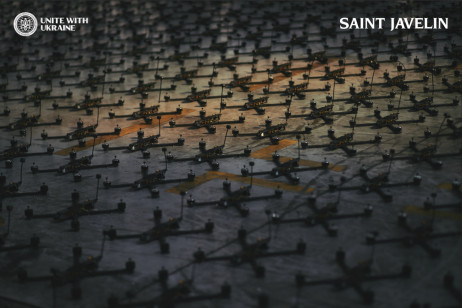
Ukrainian World Congress Delivers 750 FPV Drones to Ukrainian Defense Forces
on Apr 11, 2025
Spread the word on social media. The world can only unite when people are rallied to the urgency of Ukraine's situation.
SHARE SITE